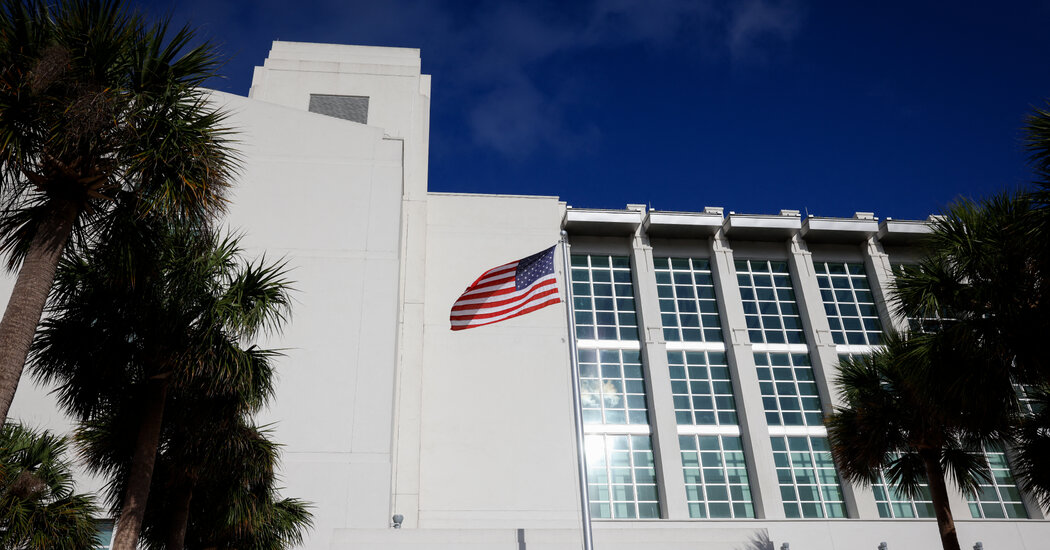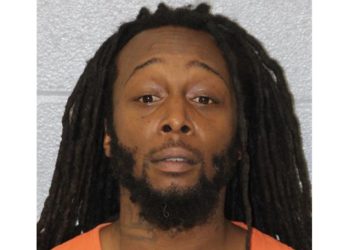A man accused of trying to assassinate President Trump at one of his Florida golf courses last year is scheduled to go to trial on Monday, a rare scenario made all the more unusual because the man intends to defend himself in court.
The trial comes nearly a year after the man, Ryan W. Routh, was arrested and charged with planning to shoot at Mr. Trump from just outside the Trump International Golf Club West Palm Beach.
On Sept. 15, 2024, a Secret Service agent fired at a man, later identified as Mr. Routh, after seeing his face and the barrel of a semiautomatic rifle on the fence near the sixth hole while Mr. Trump was golfing nearby. It was the second apparent assassination attempt against Mr. Trump last year as he was running for a second term.
Mr. Routh, a 59-year-old itinerant building contractor from North Carolina, has pleaded not guilty to charges of trying to assassinate a major presidential candidate, assaulting a federal officer and several firearm violations. The attempted assassination charge carries a maximum penalty of life in prison.
The trial will take place at the Federal District Court in Fort Pierce, Fla., about 65 miles north of the golf course, before Judge Aileen M. Cannon. She presided in 2023 over the federal prosecution of Mr. Trump involving the mishandling of classified documents before dismissing the case last summer.
Jury selection in Mr. Routh’s trial is expected to take up to three days of the trial, which could last as long as four weeks.
Mr. Routh, who is not a lawyer, will be representing himself after firing his public defenders in July, despite what Judge Cannon called their “active and competent” defense work. The judge has ordered that the public defenders be on standby during the trial.
The last time someone accused of trying to assassinate a president went on trial was in 1982, after John W. Hinckley Jr. tried to kill President Ronald Reagan. Mr. Hinckley was found not guilty by reason of insanity and was confined to a psychiatric hospital in Washington for three decades.
Last week, Mr. Routh sent a poorly typed letter to Judge Cannon chiding prosecutors for seeking to introduce new evidence against him before the trial — especially, he noted, when his own attempts to subpoena Mr. Trump to appear in the courtroom were rejected.
Mr. Routh said he would accept new evidence if his subpoena for Mr. Trump, whom he called various insulting names, was allowed. Appearing to joke with the judge, he added that they could settle his case by arranging a golf match with Mr. Trump. “He wins he can execute me, I win I get his job,” he wrote of the president.
Last week, Judge Cannon refused to allow most of the witnesses Mr. Routh hoped to call as “untimely and insufficient.” In addition to a few friends and relatives, whom the judge allowed, his list included Jason Stanley, a Yale professor and expert on fascism, and some foreign students who have been detained by the Trump administration. Mr. Routh also listed perhaps the most improbable witness of all: “Donald John Trump.”
The prosecutors’ witness list includes an array of F.B.I. agents and local law enforcement officers. Among the exhibits they plan to introduce is the Norinco SKS semiautomatic rifle that was found outside the golf course on the day of the assassination attempt and various text messages that Mr. Routh sent to his family.
During a hearing last year, Mark Dispoto, one of the prosecutors, said that Mr. Routh had a “clear line of fire” from his “sniper’s nest” under some trees by a chain-link fence. A witness spotted Mr. Routh leaving the scene in a Nissan S.U.V., and the police stopped him about 45 minutes later driving north on Interstate 95.
In the weeks that followed Mr. Routh’s arrest, details trickled out about his alleged plan to kill Mr. Trump. Using a burner phone, prosecutors said in one court filing, he researched Mr. Trump’s “campaign movements, patterns of life, the golf course, Trump’s airplane, firearms and ammunition, escape routes, local hospitals, police forensic techniques, and items he would need for the attempt.”
Mr. Routh also made plans to escape to Mexico, prosecutors said, texting on WhatsApp with a Mexican man known as “Ramiro” that he intended to be in Mexico City in the days immediately after the assassination.
According to prosecutors, Mr. Routh had left a box at a friend’s house in North Carolina months before his arrest. A note in the box read, “Dear World, This was an assassination attempt on Donald Trump but I failed you.”
Patricia Mazzei is the lead reporter for The Times in Miami, covering Florida and Puerto Rico.
Alan Feuer covers extremism and political violence for The Times, focusing on the criminal cases involving the Jan. 6 attack on the Capitol and against former President Donald J. Trump.
The post Trial to Begin for Man Charged in Trump Assassination Attempt in Florida appeared first on New York Times.




